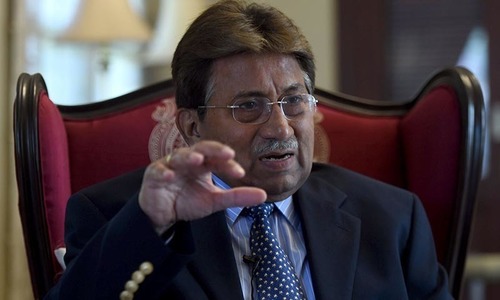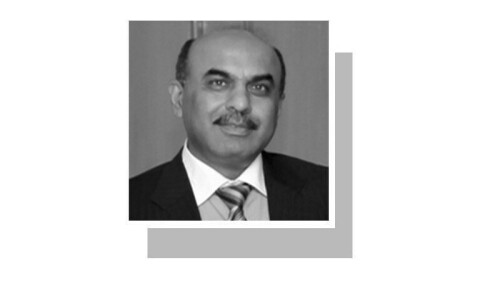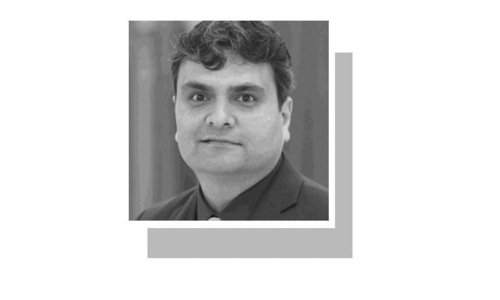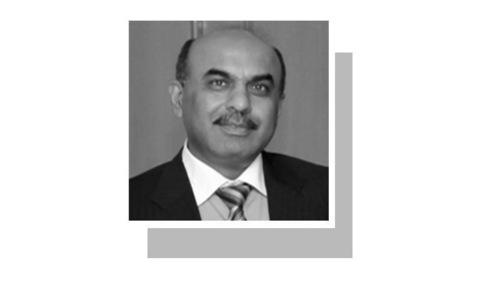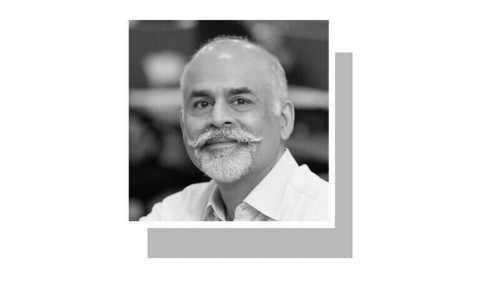'Freedom fighters' fighting in Kashmir, not terrorists, says Musharraf

KARACHI: Former president General (retd) Pervez Musharraf on Tuesday said those fighting in Indian-held Kashmir (IHK) were 'mujahideen' and 'freedom fighters' and not terrorists, BBC Urdu reported..
“Considering the atrocities and the treatment meted out to the Muslim majority in IHK, several groups such as Lashkar-i-Taiba and Jaish-i-Muhammad emerged. They were ready to lay down their lives for their Kashmiri brethren, we call them freedom fighters, not Taliban or terrorist,” Musharraf told BBC.
The former army chief also claimed that there was no 'Taliban presence' in Kashmir.
Related: US, India vow to disrupt Lashkar-i-Taiba, Al Qaeda
Musharraf elaborated that the ‘Kashmiri mujahideen’ allied with the Taliban after the 9/11 tragedy.
The former army chief also stated that he had warned the Kashmiri 'freedom fighters' about what he called an alliance with the ‘extremists’, but they joined hands with Taliban which led to the ‘mess’.
Related: ISI cultivated Taliban to counter Indian action against Pakistan: Musharraf
Elaborating on his government’s stance and development towards resolving the Kashmir issue with India, Musharraf claimed he and the Indian head of state at that time Atal Bihari Vajpayee were heading towards a workable solution.
The former president said that he and Vajpayee had similar views over Kashmir as they both were in agreement over ending the bloodshed in the scenic valley.
"Now Modi does not share the same view, he wants to intimidate Pakistan and put Pakistan on the back foot; things cannot go forward if he does not change his stance," said Musharraf.
Answering a question regarding the Lal Masjid operation during his tenure, he said whatever he did at the time was justified and all ‘terrorists’ should be treated in a similar manner.
“Now these terrorists are again raising their heads, the government should take action before it is too late,” said the former army chief.
He also defended the establishment of the National Security Council (NSC) during his tenure saying the institution could prove useful as the army was a part of it.
“When a civilian government performs poorly, people look towards army, which is not a part of any governing institution. The vacuum was filled in the form of the NSC and it stopped the threat of any army takeover in the future,” opined Musharraf.
Answering a question regarding Osama bin Laden’s presence in Pakistan, he said he will term the man’s presence on Pakistani soil an ‘intelligence failure’ and not an indicator of some kind of a ‘reconciliation’ with terrorists.
He added that the Al Qaeda chief did not stay in Abbottabad permanently.
Related: Pakistan had no prior knowledge of Bin Laden, US raid: Foreign Office
When asked about the pending cases against him and his refusal to go to the courts, Musharraf said his health problems, particularly a backbone fracture, did not allow him to attend the court hearings.
Related: Musharraf threatened Benazir before her return to Pakistan: Mark Siegel
Musharraf's interview comes at a time when Indian Minister for External Affairs Sushma Swaraj is in Islamabad to partake in the Heart of Asia Conference and hold talks with the Pakistani leadership on multiple issues.

